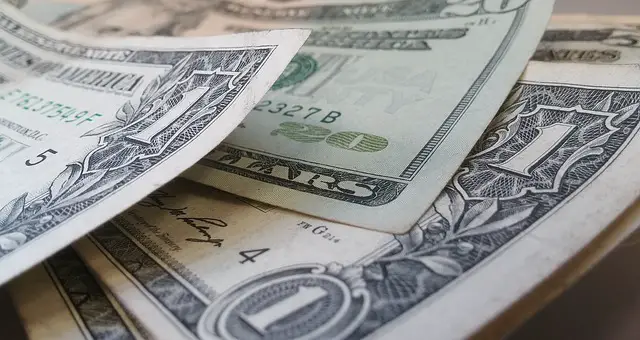Greedy people tend to be focused on obtaining as much wealth or possessions as possible regardless of the consequences, whereas stingy individuals exhibit extreme frugality often refusing to part with even small sums of money. Greed and stinginess are two distinct traits with both having unique implications for how an individual behaves in a financial context.
Greedy
(Photo By David Goehring on Flickr)

Being greedy refers to a mindset or behavior in which an individual or entity seeks to acquire as much as possible, often at the expense of others. It is a self-centered approach that prioritizes personal gain over the well-being of others or the greater good.
In personal finance, being greedy may manifest as a desire to accumulate wealth without regard for ethical or legal boundaries. For example, an investor who engages in insider trading to make a quick profit is acting greedily.
In business, greed can manifest as a focus on short-term gains at the expense of long-term sustainability or the well-being of employees, customers, or the environment. For instance, a company that cuts corners on safety regulations to save money is acting greedily.
In relationships, being greedy can manifest as a lack of empathy or consideration for the needs and feelings of others. For example, a partner who prioritizes their own pleasure and satisfaction over their partner’s needs and desires is acting greedily.
While a certain amount of self-interest is necessary for survival and success, excessive greed can lead to negative consequences for both the individual and society as a whole. It can damage relationships, harm communities, and undermine the ethical fabric of society.
Stingy
(Image by Brett Hondow from Pixabay )

Being stingy refers to a mindset or behavior in which an individual or entity is excessively reluctant to spend money or resources, even when it is necessary or appropriate to do so. It is a self-centered approach that prioritizes personal savings or hoarding over the well-being of others or the greater good.
In personal finance, being stingy may manifest as an unwillingness to spend money on basic necessities or to give to charity or those in need, even if one can afford to do so. For example, a person who refuses to buy adequate clothing or food, even though they have the means to do so, is acting stingily.
In business, stinginess can manifest as a reluctance to invest in necessary improvements, such as employee training or infrastructure, or a failure to provide adequate compensation or benefits to employees. For example, a company that refuses to invest in safety equipment or training for workers, even though it would reduce accidents and injuries, is acting stingily.
In relationships, being stingy can manifest as a lack of generosity or unwillingness to share resources or time with others. For example, a partner who refuses to pay for a date or give a gift, even though they can afford to do so, is acting stingily.
While saving and prudence are important virtues, excessive stinginess can lead to negative consequences for both the individual and society as a whole. It can damage relationships, harm communities, and undermine the ethical fabric of society.
Being Greedy Vs. Stingy – Key differences
Being greedy and being stingy are both behaviors that prioritize personal gain over the well-being of others, but there are key differences between the two.
Being greedy refers to a mindset or behavior in which an individual or entity seeks to acquire as much as possible, often at the expense of others. It can manifest as a desire to accumulate wealth or resources without regard for ethical or legal boundaries. Greed is typically associated with excessive self-interest and a lack of concern for the well-being of others.
On the other hand, being stingy refers to a mindset or behavior in which an individual or entity is excessively reluctant to spend money or resources, even when it is necessary or appropriate to do so. It is a self-centered approach that prioritizes personal savings or hoarding over the well-being of others or the greater good.
The key difference between greed and stinginess is their focus. Greed focuses on acquiring more, while stinginess focuses on holding onto what one already has. Greed is often associated with a desire for material wealth, whereas stinginess is more closely linked to a desire for security and control.
While both behaviors can have negative consequences for individuals and society as a whole, greed is generally considered more harmful because it can lead to illegal or unethical behavior, whereas stinginess is often seen as a personal failing that can be addressed through personal reflection and behavior change.
Characteristics of a stingy person
A stingy person is someone who is unwilling to spend money, even when it is necessary. They may be tight with their money, hoarding it instead of using it to improve their life or the lives of others. Stingy people may also be ungenerous with their time, energy, and resources, never going out of their way to help others. This can make them seem selfish and uncaring.
Characteristics of a greedy person
There are many characteristics of a greedy person. A greedy person is someone who is always wanting more, no matter what they have. They are never satisfied and are always looking for ways to get more money, more possessions, or more power. Greedy people are often selfish and manipulative, and will do whatever it takes to get what they want. They may lie, cheat, or hurt others in order to get ahead. Greed can also lead to a sense of entitlement, where a person feels that they deserve more than others.
Disadvantages of being greedy
The main disadvantage of being greedy is that it can lead to negative consequences such as hoarding, selfishness, and a lack of empathy. Greed can also prompt people to take advantage of others or to engage in illegal or unethical behavior in order to get what they want. Additionally, greediness can cause people to lose sight of what is truly important in life and to become obsessed with material possessions.
Disadvantages of being stingy
There are a few disadvantages to being stingy. The first is that it can lead to isolation and loneliness. When you’re always holding back, people may not want to be around you as much. You may also miss out on opportunities because you’re too busy trying to save money. Finally, stinginess can also make you seem ungenerous and ungrateful, which can damage your relationships.
How to identify stinginess and greediness in oneself
If you’re not sure whether you’re being greedy or stingy, ask yourself the following questions:
- Do I always want more than what I have?
- Do I hoard things instead of sharing them with others?
- Do I get jealous when others have something that I don’t have?
- Do I never seem to be satisfied with what I have?
- Do I always put my own needs above those of others?
If you answered “yes” to any of the above questions, then you may be exhibiting signs of greediness and/or stinginess. Try to be more mindful of your actions and motivations, and see if you can start making changes to be more generous.
How to overcome stinginess and greediness
If you find that you are struggling with greed or stinginess, there are a few things that you can do in order to overcome these tendencies. First, it is important to become aware of your thoughts and feelings around money. Do you tend to hoard your money or feel anxious about spending it? Once you have identified your thoughts and feelings, you can begin to challenge them. For example, if you find yourself thinking “I can’t afford to spend this money”, ask yourself if that is really true. Are there other areas in your life where you are able to spend freely? If so, why is money different? Why do you deserve to deprive yourself of things that would make you happy?
Another way to overcome greediness and stinginess is to practice gratitude. When we are grateful for what we have, we are less likely to feel the need to hoard or cling to our possessions. Start each day by taking a moment to think of three things that you are grateful for. You may be surprised at how this simple exercise can shift your perspective on money and possessions.
Finally, remember that giving is its own reward. When we give generously, we receive back tenfold in terms of love, happiness, and satisfaction. So next time you’re feeling tight-fisted with your money, consider making a donation to a worthy cause or buying a gift for someone special in your life.
Featured Image By – Photo by Documerica on Unsplash








